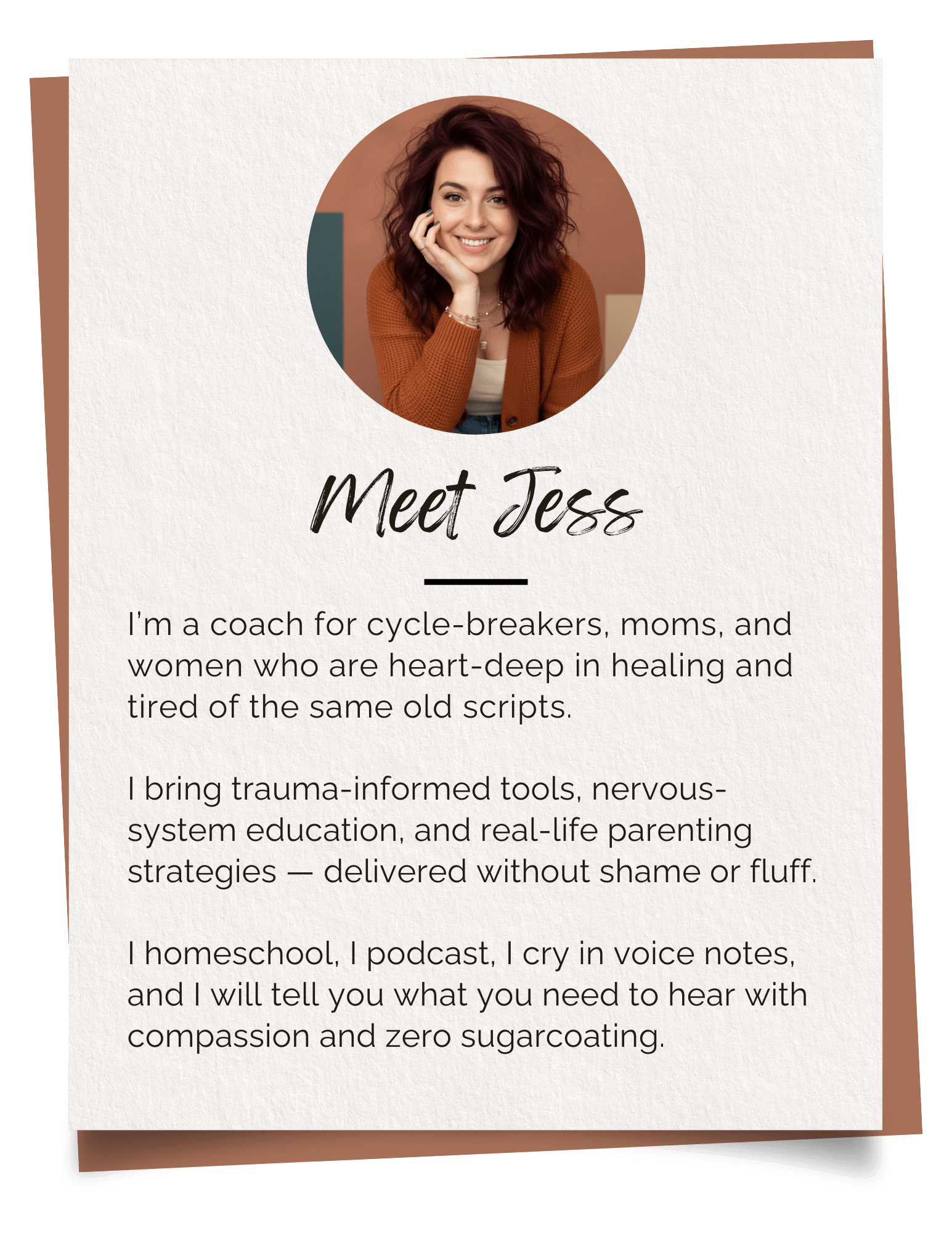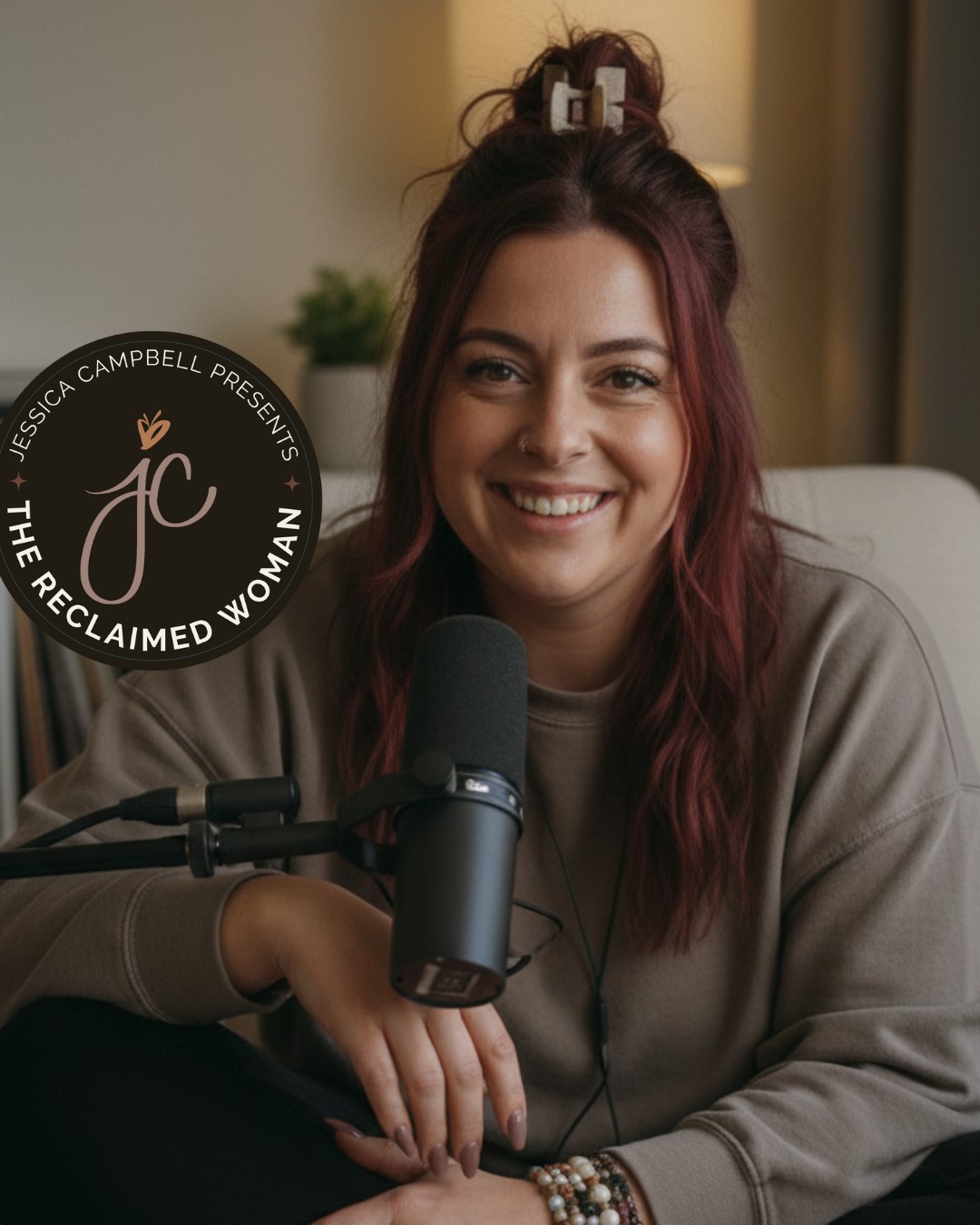
If you’ve ever mentioned “gentle parenting” or “peaceful parenting” at a family dinner, you might have gotten the look. You know the one...eyebrows raised, smirk forming, someone about to say, “Ohhh… so you just let your kids do whatever they want?” If you’re anything like me, you’ve taken a deep breath, sipped your Pepsi (yes, it’s basically my bloodstream), and resisted the urge to whip out a neuroscience textbook at the table.
Let’s clear some things up. Because peaceful parenting is NOT permissive parenting. It’s also not “new-age woo,” “anti-boundary,” or “parenting without discipline.”
It is a research-backed, deeply intentional way to raise kids who are emotionally healthy, respectful, and connected to their parents--not afraid of them.
And today? We’re busting the biggest myths so you can feel confident in this approach (and maybe even convert a few skeptical relatives along the way).
Myth #1: “Gentle parenting means no discipline.”
Truth: Peaceful parenting absolutely includes discipline, it just looks different.
When people hear “gentle” they often imagine a hands-off, “kids are in charge” household. But peaceful parenting isn’t about avoiding discipline; it’s about changing the definition of it.
Discipline comes from the Latin word disciplina, meaning “instruction” or “teaching.”
It’s not about control but it’s about guidance.
It’s not about control but it’s about guidance.
In peaceful parenting, discipline means:
- Setting clear, consistent boundaries
- Following through calmly and firmly
- Teaching your child why certain behaviors aren’t okay
- Modeling the respect you want to see
Example: Instead of yelling, “Stop throwing blocks or you’re going to time out!” You might say, “I can’t let you throw blocks—it’s not safe. You can throw this soft ball instead.” Firm. Kind. Clear. THAT is discipline.
Myth #2: “You’ll raise entitled, spoiled kids.”
Truth: Boundaries are at the heart of peaceful parenting.
I always say boundaries are the deepest form of love. When you set them consistently, you’re telling your child, I care enough to keep you safe, even when you don’t like it.
Spoiling happens when kids get whatever they want, without boundaries or limits. Peaceful parenting does the opposite. it teaches that everyone’s needs matter, and that respect goes both ways.
A home with peaceful parenting has:
- Predictable routines (kids thrive on structure)
- Limits that are explained (“We keep food in the kitchen so the ants don’t get in”)
- Consequences that make sense (if you spill it, we clean it together—not punish you for an accident)
Boundaries create safety. Safety builds trust. Trust creates respect.
Myth #3: “It only works for easy kids.”
Truth: Peaceful parenting is especially powerful for strong-willed kids.
If you have a child who seems to push back on everything, peaceful parenting might feel impossible. But here’s the thing—control-based parenting often fuels that resistance.
Strong-willed kids have a deep need for autonomy. When they feel controlled, they push harder. But when they feel heard and respected, they’re more likely to work with you.
That doesn’t mean you give in, it means you:
- Offer choices within limits (“You can brush your teeth before PJs or after, your choice”)
- Listen before you respond
- Involve them in problem-solving (“How can we make sure the toys get picked up before dinner?”)
Research on attachment shows that when strong-willed kids have a secure base—a parent who is consistent, warm, and firm—they thrive.
Myth #4: “You’re just coddling them.”
Truth: Meeting emotional needs is not the same as giving in.
I get it. Many of us grew up being told to “toughen up” or “stop crying” because our parents thought it would make us resilient. But the science says otherwise.
Kids become resilient when they experience co-regulation—when a calm, safe adult helps them navigate hard emotions. That’s how they learn to self-regulate later.
Coddling is doing everything for your child to avoid discomfort.
Peaceful parenting is sitting with your child in discomfort so they learn to move through it.
When your child is melting down because the blue cup is dirty, you’re not “rewarding bad behavior” by helping them calm down. You’re teaching them that feelings are safe, and that problem-solving is possible.
Myth #5: “It’s too soft—you’ll lose control.”
Truth: Peaceful parenting is leadership, not control.
Think about the best leaders you’ve ever had, were they the ones who barked orders and ruled by fear? Or the ones who respected you, explained expectations, and held you accountable with fairness?
Peaceful parenting is about leading your home with that same energy. You’re not abdicating authority. You’re using it in a way that builds trust instead of fear. Control demands obedience in the moment. Leadership inspires cooperation for a lifetime.
Why Peaceful Parenting Works (The Research Bit)
This isn’t just feel-good woo woo BS, there’s decades of research to back it up:
- Attachment theory shows that secure attachment is built through consistent, warm, responsive care.
- Neuroscience tells us that kids’ brains are still developing emotional regulation skills well into their twenties—our job is to coach them, not crush them.
- Authoritative parenting studies (firm + warm) show better outcomes than authoritarian (strict + harsh) or permissive (lenient + inconsistent) approaches.
In short: Peaceful parenting blends warmth with structure, connection with boundaries AND it works.
So… What Does This Look Like in Real Life?
Here’s a quick cheat sheet:
Peaceful parenting is:
- Clear expectations
- Consistent follow-through
- Empathy in discipline
- Modeling respect
- Prioritizing connection before correction
Peaceful parenting isn’t:
- Letting kids run the show
- Avoiding discipline to “keep the peace”
- Harsh punishments
- Yelling as a primary tool
Your Next Step
If you’ve read this far, you’re probably ready to start shifting your parenting. And here’s the good news: you don’t have to do it perfectly (honestly, you won’t).
But you can start today by choosing one moment to slow down, connect, and lead with respect. That’s peaceful parenting in action.
And if you want guidance, scripts, and tools tailored to your unique kids and your own triggers, that’s exactly what I do as a parenting coach.
📩 [click here] to text me and get clarity around your specific needs. Let’s make your home a place of peace and power.










0 Comments